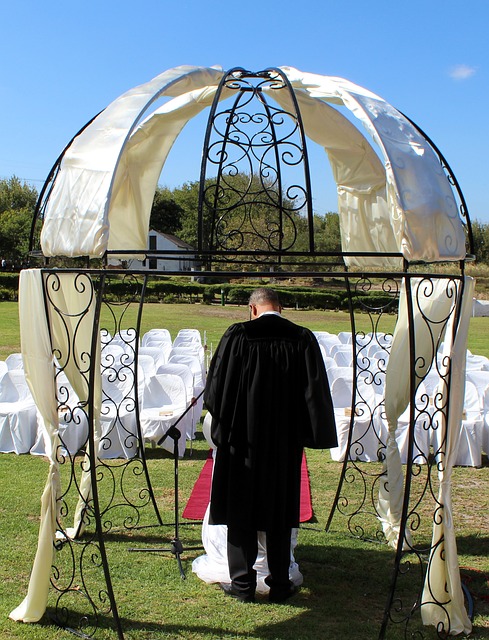
Few things strike fear in the hearts of pastors like finding out that there is an apologist in the pew. In many churches, apologists are persona non grata and in many ways the moniker of unwelcome person is the result of a self-inflicted wound.
Brief interlude: My premise is that apologists and pastors need one another. They have complimentary ministries. The apologist seems to fall somewhere between prophet and evangelist in the list of those who should be a part of the team of men that equip the church for good works. In fact, I would argue that both pastors and evangelists (apologists) each enjoy some measure of the unique gifting of each office. This should be a happy arrangement with the apologist pulling the plow alongside the pastor. However, this has not always been the case and in this blog post I catalog the reasons why both pastors and apologists have missed the mark in dealing with one another. Furthermore, I will lay out the case that the church needs apologists and apologists need the church. [Note]: I consider myself an apologist, therefore I will offer advice to budding apologists. However, I will not offer the same to pastors.
Apologists
i. Theological nitpicks: The apologist walks into church and his super-attenuated heresy detector immediately deploys. While the rest of the congregation is feeding from the word of God, the apologist is quietly assessing the message for theological consistency. The apologist has reconvened the Westminster assembly and is making mental notes for the rejoinder that will be emailed to the pastor that afternoon.
ii. Wants everyone to have our gifting: We constantly complain to one another that the church is ill-equipped to handle the “real-world” objections. It is as if the apologist believes that he and he alone is facing the onslaught of the unbelieving world. This construct would lead us to believe that the church lives happily in a bubble-wrapped cloister. We want everyone to have our gifting-except that we don’t.
iii. Tend to orient our apologetics horizontally: Apologists enjoy debate, a characteristic that goes with the gifting. However, we have a tendency to reorient our apologetics horizontally rather than vertically. We are the best of the best at taking certain scriptures and omitting much of the context in order to build out the necessity of our office. Apologetics becomes a game of “us” vs. “them” and far too often the “them” also includes the church.
iv. Expect the pastor to read the same books as us: We are disappointed when our pastor has not read and memorized the Case for Christ, Evidence that Demands a Verdict, and is not a subject matter expert on the differentiation between the Presuppositional methods of Gordon Clark and Cornelius Van Til. Even if our pastor’s bent runs toward apologetics we are aghast that he is a fan of Classical apologetics.
Advice to apologists: First and foremost, we are to exalt Christ as Lord. Our apologetics must be vertically oriented toward Christ and should be about giving an answer for our hope with gentleness and respect. Jude 3 tells us to contend earnestly for the faith, however many of us (myself included) have at times contended with our brothers and sisters and have drifted into divisiveness. It is by grace that we (apologists) have been saved and this grace must extend to those around us who may not have the same predilection and gifting. If our ministry is to be welcomed, encouraged, and supported by the church we must go out of our way to develop our apologetics so that it warms the hearts of the saints and stills the mouth of the scoffer never failing to exalt Christ as Lord.

Pastors
i.Might be suspicious of the apologist: Sometimes pastors can become overly guarded when a self-styled apologist walks in the door. There is considerable fear that the apologist will become divisive or will offer a rejoinder to every single sermon ever preached (cf. Pt. i. above) Many apologists are so protective of “truth” that they do not remember the Augustinian maxim that “all truth is God’s truth”.
ii. Might question the axiology of apologetics: Many pastors are dealing with the brokenness that exists in their own congregations and apologetics seems esoteric or disconnected with real life pastoral concerns. Contemporary Christian ethos is partially to blame. The instruction that we have received from postmodernism is that truth claims are not absolute, ergo apologetics with its attendant demands of objective and absolute truth seem pas·sé.
iii. Can be fearful: At times pastors can become fearful that apologetics ministries will supersede the preaching ministry of the church. While this may seem far-fetched there is some truth in this fear. Churches that are too focused on apologetics become myopically focused on the world and the resultant militancy is far worse than having no apologetics whatsoever.

We need each other:
Apologists need to be in fellowship with their pastors. We need to understand and acknowledge the real brokenness of the world and our own congregations. Pastors can help apologists become more pastoral in their dealings with people. Far too often apologists are quick to clobber people with the truth, and our natural zeal can be a source of hurt rather than healing.
Pastors need to be in fellowship with apologists. Often times the overwhelming responsibilities of pastoral ministry leaves little time for assessing the points of attack proffered by an unbelieving world. Apologists can be source of encouragement and a refreshing to the pastor wearied by shallow spirituality.
The church needs apologetics:
In its proper place, apologetics can be a source of joy and can strengthen our faith. We do not need to accept the false dichotomy of faith or reason. Apologists should be the watchmen on the wall protecting the church not seeking to divide and conquer from within. The church must deal with many competing truth claims; militant atheism, post-Kantian skepticism, neo-Marxist political correctness, false forms of Christianity, and new age spirituality just to name a few. In order to wade through these troubled waters an apologist working side-by-side with the pastor can offer a reasoned defense seasoned with copious amounts of grace.